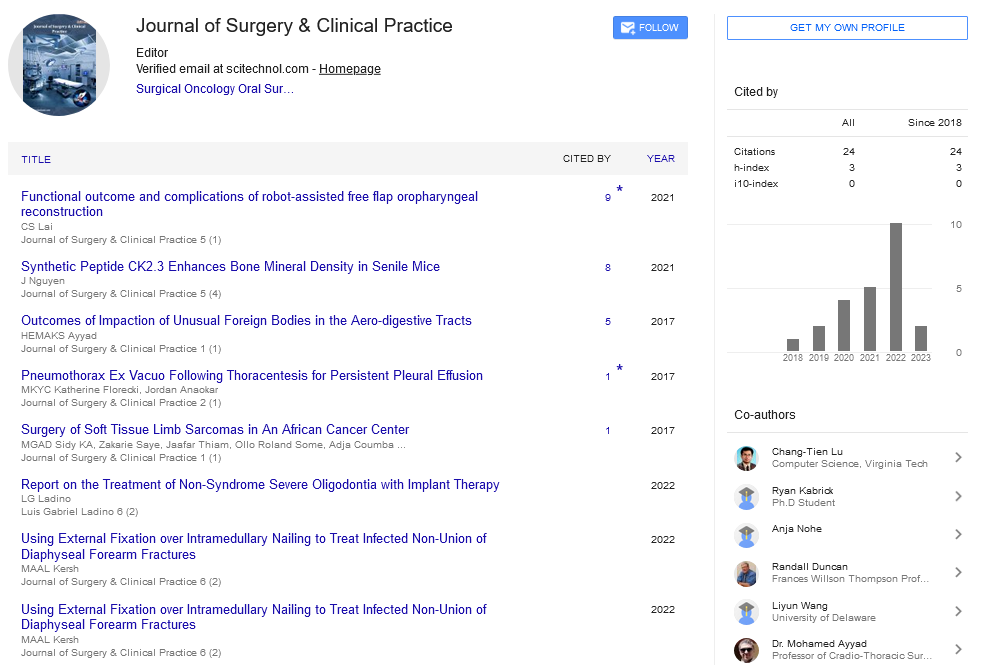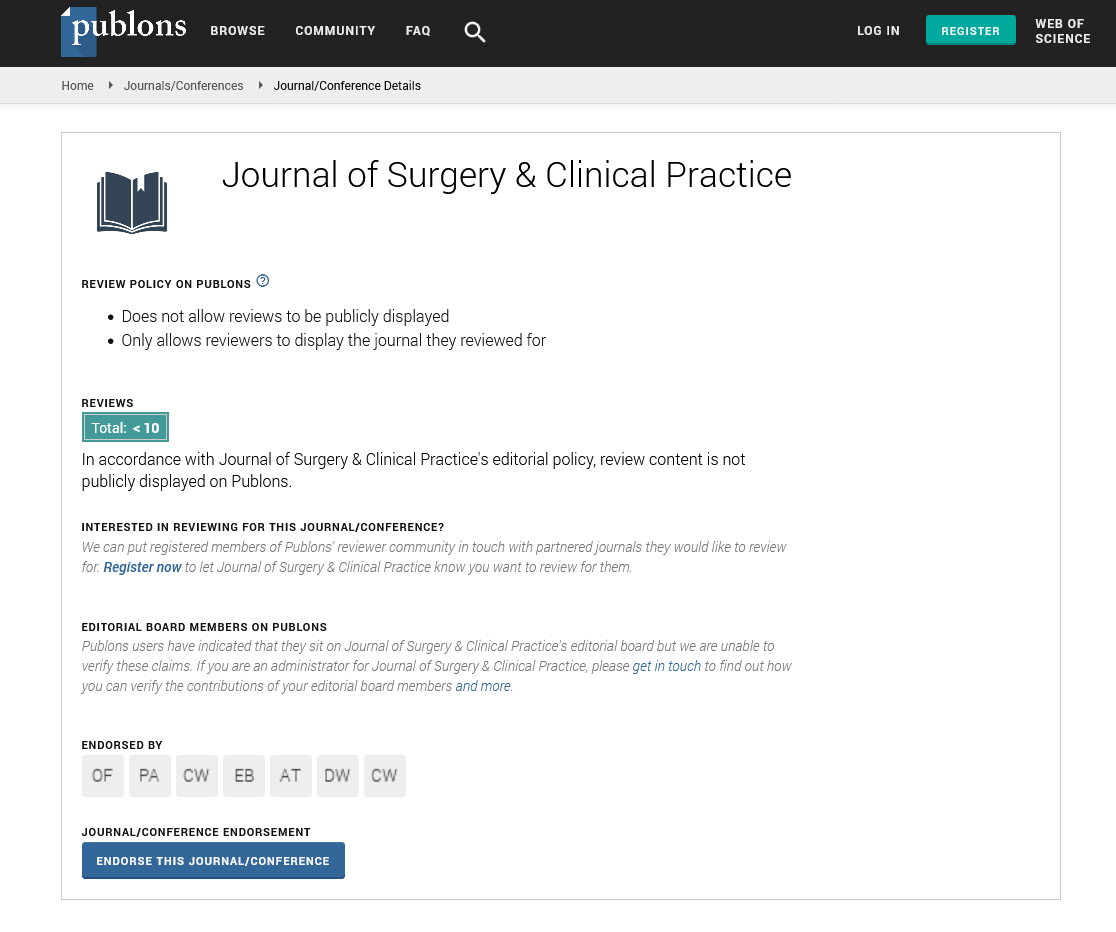An experience with craniocervical junction dural arteriovenous fistula - A rare entity
Gagan Dhall and Batuk Diyora
Lokmanya Tilak Municipal Medical College, India
: J Surg Clin Pract
Abstract
Introduction: Arteriovenous fistulas (AVF) can be Cranial, Spinal or Craniocervical junction (CCJ). AVF at CCJ are rare amongst neurosurgical vascular malformations. Out of five angiographic types, type I is CCJ Dural AVF amongst others like radicular, epidural and perimedullary. Variable arterial supply and venous drainage along with complicated anatomy adds to further intricacy. In present era, studies comparing open vs endovascular management are pushing the boundaries further. Case report: 32yrs old male presented to emergency department with headache a/w vomiting, left sided weakness, change in voice and swallowing difficulty since six days. History was s/o intermittent occipitocervical headache since 3 years. CT angiography, MRI and digital subtraction angiography (DSA) were performed. Patient had diffuse subarachnoid hemorrhage (SAH), intraventricular hemorrhage and medullary bleed. An abnormal conglomeration of vessels at the left CCJ was identified with afferents from meningeal branch of left vertebral artery draining into left sigmoid sinus. Far lateral suboccipital craniotomy was planned. Fistula was clipped. Intraoperative Doppler confirmed clip location and absent distil flow. Pt. had no headache and hoarseness at discharge. Power in limbs improved. Patient had residual swallowing difficulty. Review of literature: In studies by Wang et al and Zhao et al, SAH and myelopathy were major and brain stem dysfunction was amongst rare presentations. Both confirm higher surgical efficacy of open procedure and, include microsurgery as factor determining overall improvement. Conclusion: Dural AVF at CCJ has wide presentations. Intracranial drainage and presence of varices has higher risk of SAH. Six-vessel DSA is gold standard. Microsurgery has higher rate of obliteration compared to embolization.
Biography
Gagan Dhall has completed his Masters in General surgery at the age of 28 years from Maharashtra University of Health Sciences, India and is currently pursuing superspecialisation in Neurosurgery from one of the country’s most prestigiuos and biggest trauma center L.T.M. Medical College and Sion General Hospital, Mumbai. His areas of interest are Neuro-intervention and Role of Stem cell therapy in Neuro - rehabilitation.
E-mail: drgagandhall@gmail.com
 Spanish
Spanish  Chinese
Chinese  Russian
Russian  German
German  French
French  Japanese
Japanese  Portuguese
Portuguese  Hindi
Hindi 
